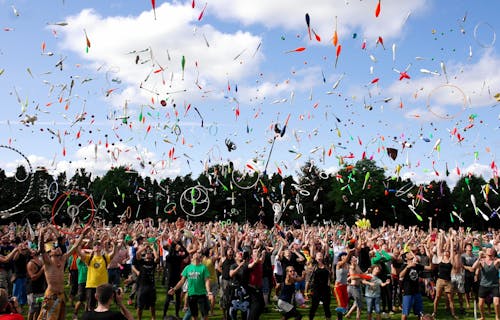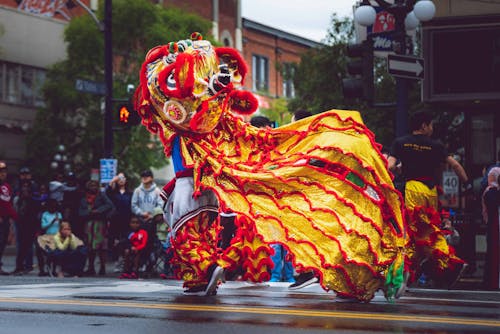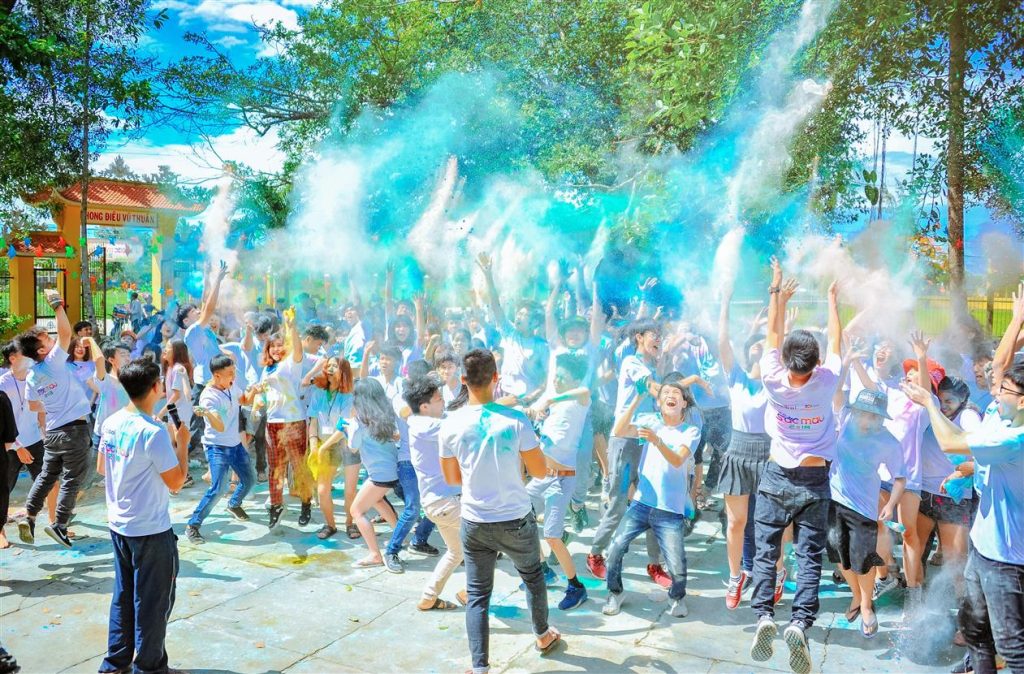
Festivals are a vibrant expression of culture, tradition, and community. They serve as an opportunity for people to come together, celebrate their heritage, and share in the joy of communal experiences. From lively street parades to tranquil spiritual ceremonies, festivals around the world offer unique insights into local customs and traditions. This essay explores some of the most captivating festivals across different continents, highlighting their significance, key activities, and the experiences they offer to visitors.
Festivals in Europe
Oktoberfest – Munich, Germany
Overview
Oktoberfest is the world’s largest beer festival, held annually in Munich, Germany. It begins in late September and runs into the first weekend of October, attracting millions of visitors each year.
Key Activities
- Beer Tents: The festival features large beer tents operated by Munich’s six major breweries. Each tent offers a unique atmosphere, live music, and a variety of traditional German foods.
- Traditional Attire: Visitors often dress in traditional Bavarian clothing, such as lederhosen for men and dirndls for women, adding to the festive atmosphere.
- Cultural Events: Oktoberfest includes parades, amusement rides, and performances of traditional Bavarian folk music and dance.
Experience
Attending Oktoberfest offers a deep dive into Bavarian culture, from tasting authentic German brews and cuisine to enjoying traditional music and dance. The festival’s communal atmosphere fosters connections among locals and visitors alike.
La Tomatina – Buñol, Spain
Overview
La Tomatina is an annual tomato-throwing festival held in Buñol, Spain, typically on the last Wednesday of August. It is renowned for its sheer fun and exuberance.
Key Activities
- Tomato Fight: Participants engage in a massive tomato fight, throwing overripe tomatoes at each other in a spirited display of camaraderie.
- Preparation: The town and participants prepare for the event by wearing old clothes and goggles to protect against the acidic tomato juice.
- Post-Festival: After the tomato fight, the streets are cleaned, and participants often enjoy local food and drinks.
Experience
La Tomatina is a chaotic and exhilarating experience, allowing visitors to let loose and participate in a unique tradition that promotes community and joy.
Edinburgh Festival Fringe – Edinburgh, Scotland
Overview
The Edinburgh Festival Fringe, commonly referred to as the Fringe, is the world’s largest arts festival, held annually in August. It showcases a diverse range of performances, from comedy and theater to music and dance.
Key Activities
- Performances: The festival features thousands of performances across numerous venues, including theaters, pubs, and open spaces.
- Diverse Acts: Acts range from emerging artists to established performers, offering something for every taste.
- Street Performers: The streets of Edinburgh are filled with street performers and buskers, adding to the vibrant festival atmosphere.
Experience
The Fringe offers a platform for creative expression and cultural exchange, providing visitors with a chance to experience cutting-edge performances and engage with artists from around the world.
Festivals in Asia
Diwali – India
Overview
Diwali, also known as the Festival of Lights, is one of the most important Hindu festivals celebrated in India and around the world. It usually falls in October or November.
Key Activities
- Lighting Lamps: The festival is marked by the lighting of oil lamps and candles, symbolizing the victory of light over darkness.
- Fireworks: Diwali celebrations include spectacular fireworks displays that light up the night sky.
- Feasting: Families gather to share traditional sweets and dishes, and homes are adorned with colorful decorations.
Experience
Diwali provides an immersive experience into Hindu traditions, offering a celebration of light, joy, and togetherness. Visitors can enjoy the festive atmosphere, participate in rituals, and savor the rich culinary offerings.
Hanami – Japan
Overview
Hanami, or cherry blossom viewing, is a traditional Japanese festival held in spring to celebrate the blooming of cherry blossoms. It typically occurs from March to May.
Key Activities
- Picnics: People gather in parks under cherry trees to enjoy picnics and celebrate the fleeting beauty of the blossoms.
- Cultural Events: Hanami includes various cultural events such as traditional music performances and tea ceremonies.
- Photography: The festival provides excellent opportunities for photography, capturing the delicate beauty of the cherry blossoms.
Experience
Hanami is a serene and picturesque festival that allows visitors to experience Japan’s appreciation for nature and its seasonal beauty. The gentle, fleeting nature of the cherry blossoms adds a layer of poignancy to the celebrations.
Songkran – Thailand
Overview
Songkran, the Thai New Year festival, is celebrated from April 13th to 15th. It is known for its large-scale water fights and traditional ceremonies.
Key Activities
- Water Fights: Participants throw water at each other in the streets, symbolizing the washing away of the old year’s misfortunes and welcoming the new year.
- Religious Ceremonies: Traditional ceremonies include visiting temples, offering food to monks, and pouring water over Buddha statues for blessings.
- Family Gatherings: Families come together to celebrate, pay respects to elders, and enjoy festive meals.
Experience
Songkran offers a vibrant and lively experience, combining traditional ceremonies with the joyful chaos of water fights. It’s an opportunity to witness and participate in a unique cultural celebration.
Festivals in the Americas
Carnival – Rio de Janeiro, Brazil
Overview
Carnival in Rio de Janeiro is one of the largest and most famous festivals in the world, held annually before Lent. It features a dazzling display of music, dance, and colorful costumes.
Key Activities
- Samba Parades: The highlight of Carnival is the samba parade, where samba schools compete in elaborate costumes and floats.
- Street Parties: Block parties, or “blocos,” take place throughout the city, offering a more informal and inclusive celebration.
- Music and Dance: The festival features live music performances, samba dancing, and vibrant street performances.
Experience
Rio’s Carnival is a sensory overload of music, color, and energy. It provides an immersive experience into Brazilian culture and its passion for music and dance.
Day of the Dead – Mexico
Overview
The Day of the Dead (Día de los Muertos) is a Mexican festival held from October 31st to November 2nd to honor deceased loved ones. It combines indigenous traditions with Catholic practices.
Key Activities
- Altars: Families create altars, or “ofrendas,” decorated with photos, mementos, and offerings for the deceased.
- Parades: Vibrant parades featuring colorful costumes, traditional dances, and music are held in various cities.
- Traditional Foods: Special foods like pan de muerto (bread of the dead) and sugar skulls are prepared and shared.
Experience
The Day of the Dead provides a poignant and colorful celebration of life and death. Visitors can gain insights into Mexican customs surrounding death and the afterlife, experiencing a festival rich in tradition and meaning.
Mardi Gras – New Orleans, USA
Overview
Mardi Gras, or Fat Tuesday, is celebrated in New Orleans with parades, parties, and masquerade balls. It marks the culmination of the Carnival season before Lent begins.
Key Activities
- Parades: The city hosts numerous parades featuring elaborate floats, costumed participants, and bead throwing.
- Costumes: Revelers often dress in elaborate costumes and masks, adding to the festival’s festive atmosphere.
- Balls and Parties: Mardi Gras includes a range of formal balls and informal parties, showcasing local music and dance.
Experience
Mardi Gras offers an energetic and festive atmosphere, reflecting New Orleans’ rich cultural heritage and vibrant spirit. It’s a chance to experience the city’s unique blend of music, cuisine, and celebration.
Festivals in Africa
Fes Festival of World Sacred Music – Fes, Morocco
Overview
The Fes Festival of World Sacred Music is held annually in Fes, Morocco. It brings together musicians and spiritual leaders from around the world to celebrate sacred music traditions.
Key Activities
- Musical Performances: The festival features performances of sacred music from various religious and cultural traditions.
- Workshops and Discussions: Workshops and discussions explore the intersection of music, spirituality, and culture.
- Cultural Events: Additional events include art exhibitions, poetry readings, and traditional Moroccan performances.
Experience
The Fes Festival offers a profound exploration of sacred music and spiritual traditions. Visitors can experience a diverse range of performances and engage in cultural exchanges that highlight the universal nature of music and spirituality.
Cape Town International Jazz Festival – Cape Town, South Africa
Overview
The Cape Town International Jazz Festival, often referred to as Africa’s Grandest Gathering, is one of the largest jazz festivals on the continent. It takes place annually in Cape Town, South Africa.
Key Activities
- Jazz Performances: The festival features performances by leading jazz musicians from South Africa and around the world.
- Workshops: Educational workshops and masterclasses provide opportunities for learning and skill development.
- Local Culture: The festival also highlights South African culture through local food, crafts, and art.
Experience
The Cape Town International Jazz Festival offers a rich blend of musical performances and cultural experiences. It’s an opportunity to enjoy world-class jazz and engage with South Africa’s vibrant artistic scene.
Great Ethiopian Run – Addis Ababa, Ethiopia
Overview
The Great Ethiopian Run is an annual 10K road race held in Addis Ababa, Ethiopia. It is one of Africa’s largest running events and attracts participants from around the world.
Key Activities
- Road Race: The race features various categories, including elite, amateur, and fun runs, promoting health and fitness.
- Cultural Events: The event includes cultural performances and celebrations, showcasing Ethiopian music, dance, and cuisine.
- Community Engagement: The run promotes community engagement and supports local development initiatives.
Experience
The Great Ethiopian Run offers a unique blend of athletic competition and cultural celebration. Participants can enjoy the vibrant atmosphere of Addis Ababa while contributing to local development efforts.
Planning Your Festival Experience
Research and Preparation
Timing
- Dates: Research the festival dates and plan your trip well in advance to secure accommodations and travel arrangements.
- Season: Consider the season and weather conditions of the destination to ensure a comfortable experience.
Accommodations
- Booking: Book accommodations early, especially for popular festivals, to secure the best options and rates.
- Proximity: Choose accommodations that are conveniently located near the festival venues to minimize travel time.
Cultural Sensitivity
Respect Traditions
- Customs: Familiarize yourself with the festival’s customs and traditions to show respect and avoid misunderstandings.
- Behavior: Adhere to local customs and dress codes, and be mindful of cultural norms and practices.
Engage with Locals
- Interaction: Engage with locals and participate in festival activities to gain a deeper understanding of the cultural significance.
- Support: Support local businesses and vendors by purchasing food, crafts, and souvenirs.
Health and Safety
Health Precautions
- Vaccinations: Check if any vaccinations or health precautions are required for your destination.
- Travel Insurance: Obtain travel insurance that covers health issues and potential disruptions.
Safety
- Local Laws: Be aware of local laws and regulations to ensure a safe and enjoyable experience.
- Emergency Contacts: Keep emergency contact information and know the location of local medical facilities.

Festivals around the world offer a rich tapestry of cultural experiences, each providing unique insights into the traditions, values, and celebrations of different communities. From the exuberant parades of Rio de Janeiro’s Carnival to the tranquil cherry blossom viewings of Japan’s Hanami, these festivals celebrate the diversity and vibrancy of human culture. By exploring these festivals, travelers not only witness extraordinary events but also gain a deeper appreciation for the global tapestry of traditions and communal joy. Whether participating in a traditional tomato fight in Spain or immersing oneself in the sacred music of Morocco, festival travel provides an enriching and unforgettable experience.



